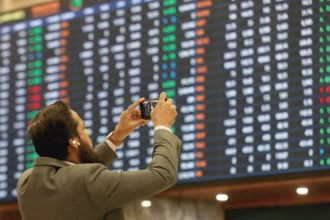France faces a political deadlock after Sunday’s elections, which resulted in no majority, with a leftist alliance leading unexpectedly. This alliance edged ahead of the far right, surprising many.
Voters dealt a significant blow to Marine Le Pen’s National Rally (RN), which, despite predictions, secured third place. The centrist President Emmanuel Macron also faced disappointment; his call for an early election followed RN’s defeat in the European Parliament elections.
The outcome fragmented parliament significantly, likely diminishing France’s influence in the EU and complicating domestic policy initiatives. Parliament is now split into three major groups: left, centre, and far right, with little history of cooperation.
The future remains unclear. The New Popular Front (NFP) alliance, proposing price caps on essentials and a wealth tax, declared its intent to govern. “The president must invite the New Popular Front to govern,” stated Jean-Luc Melenchon, the hard-left leader.
Despite efforts by Le Pen to distance the RN from past allegations of racism and antisemitism, scepticism remains. Meanwhile, left-wing supporters celebrated in Paris joyfully and were relieved when the results were announced.
Electoral Outcomes and Projections
The awkwardly formed leftist alliance, comprising hard-left, Greens, and Socialists, fell short of a majority. With most official results pending, forecasts suggested the left would secure 184-198 seats, Macron’s centrists 160-169, and the RN 135-143.
The euro dipped following these projections. “We should see temporary market stability… but likely political gridlock until at least autumn 2025,” predicted Aneeka Gupta, a macroeconomic research director.
Prime Minister Gabriel Attal planned to resign but would remain in a caretaker role as needed. The key issue is whether the leftist alliance can maintain unity and decide on a direction. Melenchon dismissed a broad coalition, while Raphael Glucksmann from the Socialist Party called for mature negotiations among the factions.
While not required, Macron typically invites the largest group in parliament to form a government. His next steps remain unknown, with one aide questioning which coalition could secure the 289 seats needed to govern.
Some in Macron’s circle, including former Prime Minister Edouard Philippe, considered a broad alliance, excluding the far-left LFI.
Reaction from National Rally (RN)
The RN results fell short of expectations set by prior polls. After the first voting round, left and centrist groups united against the RN, leading to RN leader Jordan Bardella decrying the “disgraceful alliance.”
Eyeing the 2027 presidential race, Le Pen remained optimistic, viewing the gains as groundwork for future success.
Voters expressed their discontent with Macron over living costs, public services, immigration, and security issues, where Le Pen found resonance. However, her party’s reach expanded but wasn’t sufficient for victory.






